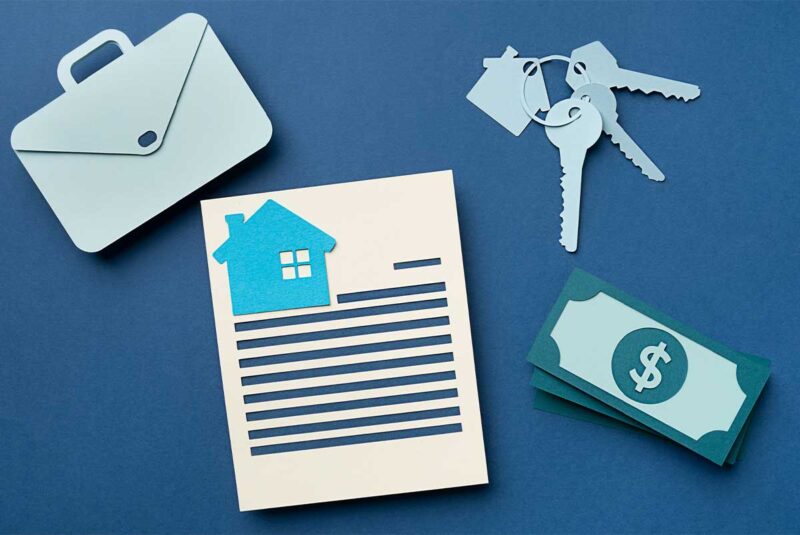Ready To Buy a Home?
Get Approved to Buy a Home
Rocket Mortgage® lets you get to house hunting sooner.
Applying for a mortgage loan isn’t as straightforward as getting a simple yes or no. There are multiple steps in the process. One of them is getting a conditional loan approval.
In this guide, we’ll go over what it means, how it works and the next steps to closing on a house.
What Does Conditional Loan Approval Mean?
Conditional approval on a mortgage is when a mortgage underwriter is generally satisfied with your application and is willing to approve your loan on the condition that you meet their pending requirements.
When you’re conditionally approved, there will be a dollar amount you’re approved for. However, this is conditional and is not a guarantee of final approval. The next steps will be to satisfy the lender’s remaining conditions to transition to a firm approval.
What types of conditions exist?
Conditional approvals are quite common when it comes to buying a house. Here are some of the conditions you’re most likely to encounter:
- Verifying your income and job: You will be asked to verify your income and employment with documentation, like pay stubs and bank statements.
- Getting mortgage insurance: Many lenders require proof of mortgage insurance before approving a loan. Private mortgage insurance (PMI) is required for conventional loans with less than a 20% down payment. Federally backed government loans require a mortgage insurance premium (MIP).
- Disclosing any gift letter: If you’re getting gift money from the Bank of Mom or Dad, you’ll need to provide a gift letter.
- Providing asset statements and title verification: If you have assets, such as cars or other properties, you may need to provide title verifications for each one.
- Submitting a home appraisal: The lender may request a home appraisal to confirm the property value and condition of the home.
- Getting a home inspection done: An inspection is a top-to-bottom examination of a home that determines the home’s condition and details any problems with the home. These are not always required by the lender, but are highly recommended as they can give you a better idea of the condition of the home and any potential issues.
These are some of the most common conditions you’ll encounter. Note that some loans, like a Federal Housing Administration (FHA) loan, Department of Veterans Affairs (VA) loan and other government-backed loans, will require more items to verify loan requirements.
For example, an FHA conditional loan approval may require a clear title search in addition to income verification, an appraisal and proof of homeowners insurance.
Conditional Loan Approval Requirements
To secure a conditional approval, you must submit a mortgage application, and the underwriter must have a generally favorable view of your application. In addition, there may be some outstanding questions you need to answer.
Some general requirements come with the process.
Conditional Approval Requirements
Your odds of getting the loan will be heavily influenced by things like the total value of the loan and the size of your down payment. Most of the time, you’ll receive conditional approval after an offer has been accepted. (There are some exceptions.)
To be conditionally approved, your credit score will need to meet your lender’s minimum requirements for the specific loan you’re applying for.
You must formally submit your mortgage application for the underwriter to consider and conditionally approve.
With a mortgage application, some common documents you need to provide include tax returns, pay stubs, W-2s and bank statements. Your underwriter may ask for additional documentation depending on their specific concerns.
There are two scenarios where you might need to be conditionally approved before getting an offer accepted.
- Ultra-competitive housing market: In extremely competitive markets, you might need to get conditionally approved to set your offer apart.
- Building a home: If you need a construction loan, the builder might require conditional approval before agreeing to participate in the project.
Benefits of Conditional Loan Approval
A conditional approval is considered stronger from a seller’s perspective than a preapproval, and having one can help win a bidding war. That’s why in ultra-competitive markets, some buyers choose to get conditionally approved to strengthen their offer.
However, in a more traditional timeline, having a conditional approval can speed up the closing process. In this instance, conditional approval comes after an offer is accepted, and it can take less time to review all the documents.
Other Types of Approval
It’s important to note that conditional approvals are not the only type of approval available for a mortgage loan. Several types of approvals are possible in the home buying process, with differences in their requirements or respective places within the journey.
Initial approval/prequalified approval or preapproval
Before you commit to one lender, you can apply to multiple lenders. They’ll pull your credit to review your credit score, history and outstanding debts. You also provide a verbal statement of all your income and assets.
Based on this information, you’re given an estimate of what size mortgage loan you may be approved for. Because your income and assets haven’t been verified, this estimate is not guaranteed.
From there, you may be given an initial approval/prequalified approval or a preapproval. As a rule, a preapproval usually carries more weight than a prequalified approval.
Unconditional approval
An unconditional approval is the next step after conditional approval. It means you’ve provided the information to the underwriter and met the terms of your conditional approval, so the lender has lifted the conditions and given you a formal letter of approval.
Verified approval
Once you’ve submitted everything requested by the lender, you can move on to the verified approval stage. With a verified approval, the lender has verified your credit, income and assets and has approved you to purchase a home.
Verified approval is stronger than initial approval and conditional approval because it confirms that you have the financing for the home purchase.
Can You Be Denied After Conditional Approval?
Yes, your application can still be denied after being conditionally approved. Some of the common reasons why conditional approval is denied are:
- The requested documents were late.
- Big purchases, such as a car, raise red flags for the lender.
- The requirements of the loan haven’t been met.
- There’s been a recent drop in income.
- A home inspection or appraisal reveals unknown issues in the home.
- The home has a lien on it, so a clear title cannot be established.
When you’re denied final approval, the first step is to determine why you were denied. Try to work with the lender to clarify and explain any issues the lender considered disqualifying. Otherwise, you may need to restart the process.
If the loan is denied, you should get a declination letter that explains why. If you don’t receive a letter, or if it doesn’t detail why you were denied, be sure to reach out to your lender.
How Long To Close After Conditional Approval?
Once the underwriting process begins, it can take a few days to several weeks. The time frame depends on the type of information that’s missing. On average, it takes 1 – 2 weeks to complete the underwriting process.
Apart from underwriting, there are some additional steps in the closing process:
The good news is that these steps can usually be done in tandem with the underwriter’s review of your documents. Generally speaking, it takes 30 – 45 days to close after an accepted offer.
Final Thoughts On Conditional Loan Approval
Remember, even if you get conditionally approved, your lender can only accept your loan if you meet the conditions outlined. Be sure to stay in close communication with your lender, promptly provide any required documentation and avoid making any large purchases or changing your financial circumstances.
Home is worth it.
The mortgage process can be exciting, and we’ll be with you all the way. Take the first step to owning a home. You’ll be glad you did.
The Short Version
- Conditional approval is when a mortgage underwriter is generally satisfied with your loan application and is willing to approve your loan if you meet pending requirements
- Common conditions include: income and job verification, getting a home appraisal, proof of mortgage insurance and disclosing gift letters
- You can be denied a loan after receiving conditional approval because you didn’t meet requirements or deadlines for providing documents or your financial situation changed




